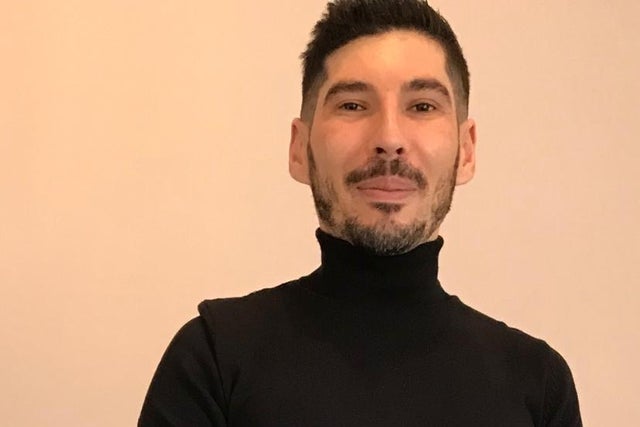“My life has changed completely” – how one modern slavery victim escaped his captors and rebuilt his life thanks to a Sheffield-based organisation

Marian Costin, aged 34, who is originally from Romania, came to the UK in 2014, and first found work in a Scottish restaurant.
However, after a friend suggested he move to London to work in a car wash, he began to be criminally exploited.
After enduring weeks of no pay and being forced to open fraudulent bank accounts with fake identification, Marian escaped, finding refuge in a police station and telling them his story.
It was then he was told about City Hearts, a Sheffield-based organisation that runs safe houses and does outreach work with survivors of modern slavery.
After moving to a safe house in the north of England, he later found work at the Co-op and then Dixons, where he still works now.
He now lives in Greater Manchester, has a partner and says he is a different man – all thanks to City Hearts.
He said: “When I first arrived at the safe house, I felt a little confused and unsure what to expect, but I soon began to feel safe and protected.
“City Hearts helped me so much. Getting identification, helping me to find accommodation and teaching me English through classes, which has made me feel much more confident.
“After I left the safe house, I attended weekly drop-in sessions, where we played games and did activities.
“Now, I feel happy and safe. My life has changed completely.”
Marian said he originally left Romania for a better life, and never imagined that he would end up in a situation where he was in fear for his life.
He was forced to work 12 hours a day for six days a week, as well as being made to set up dozens of fake IDs and bank accounts for the criminal gang exploiting him.
However, one night, while his captors were drinking and taking drugs, he decided it was his chance to get away.
“I grabbed some of the fake IDs in the house and ran to the nearest police station,” he said.
“I was really scared they would come after me, and feared the police wouldn’t believe me. When I got to the police station, it was closed. I had to get to another station as fast as I could.
“I ran in and said ‘I need help’, throwing the collection of fake identities onto the reception desk.”
Fortunately, the police believed Marian and referred him into the National Referral Mechanism (NRM), a framework for identifying victims of human trafficking and ensuring they receive the appropriate protection and support.
Phill Clayton, head of development at City Hearts, said it was this quick identification of Marian as a victim rather than a criminal which changed his life.
The safe house provided him with accomodation and small income via the NRM, before he was helped back into legitimate work via City Hearts’ Bright Future scheme.
“Before I didn’t have any dreams but I can see a nice future now,” said Marian.
“City Hearts have helped me a lot and maybe my experience can help others. There are still too many people in the same situation.
Sadly, Marian is just one of tens of thousands of people who are criminally exploited in the UK every year.
But a JPI Media investigation has exposed the extent to which perpetrators are escaping justice, with South Yorkshire Police failing to bring charges for more than 400 slavery and trafficking crimes since the 2015 Modern Slavery Act was passed, with suspects facing action in fewer than one in 25 cases.
The landmark legislation was designed to crack down on the ‘appalling crime’ – which ranges from forced prostitution to labour exploitation and domestic servitude – with simplified offences and tougher punishments.
But between 2015 and September 2020, just 3.8 per cent of modern slavery offences recorded by South Yorkshire Police have resulted in a charge and for the small proportion of cases that did make it to court, not a single conviction was secured where modern slavery was the principal offence.
The Independent Anti-Slavery Commissioner Dame Sara Thornton – a role created by the 2015 Act – said the current lack of risk to criminals ‘fails to counter the economic reward of trafficking in people, or prevent organised crime groups acting with impunity’.
She called on police to ‘take advantage of the full spectrum of evidential opportunities to reduce reliance’ on victims’ testimony, adding prosecutions should be ‘victim focused but not victim reliant’.
But Detective Chief Inspector Mick Hakin of South Yorkshire Police said that while modern slavery was a serious crime, it was often very hard to recognise and detect.
He said: “Prosecuting offenders can be challenging due to the hidden nature of the criminality, and the complex nature of how offenders operate across domestic and international borders. There are a number of modern slavery investigations currently being processed by South Yorkshire Police through the criminal justice system. This will increase the number of offenders being charged, and subsequently being prosecuted by the courts, and will in turn safeguard vulnerable individuals who are the victim of exploitation through modern slavery.”
“It is with help from our communities that we recognise those at risk and strive to stamp our modern slavery wherever we find it. We would encourage anyone with concerns to report them to us so we can investigate. If you have concerns that an individual or group of people are being exploited, please call 101, or on 999 in an emergency. You can also contact the Modern Slavery Helpline on 0800 0121700, which is open 24/7.”
Source: (The Star)

